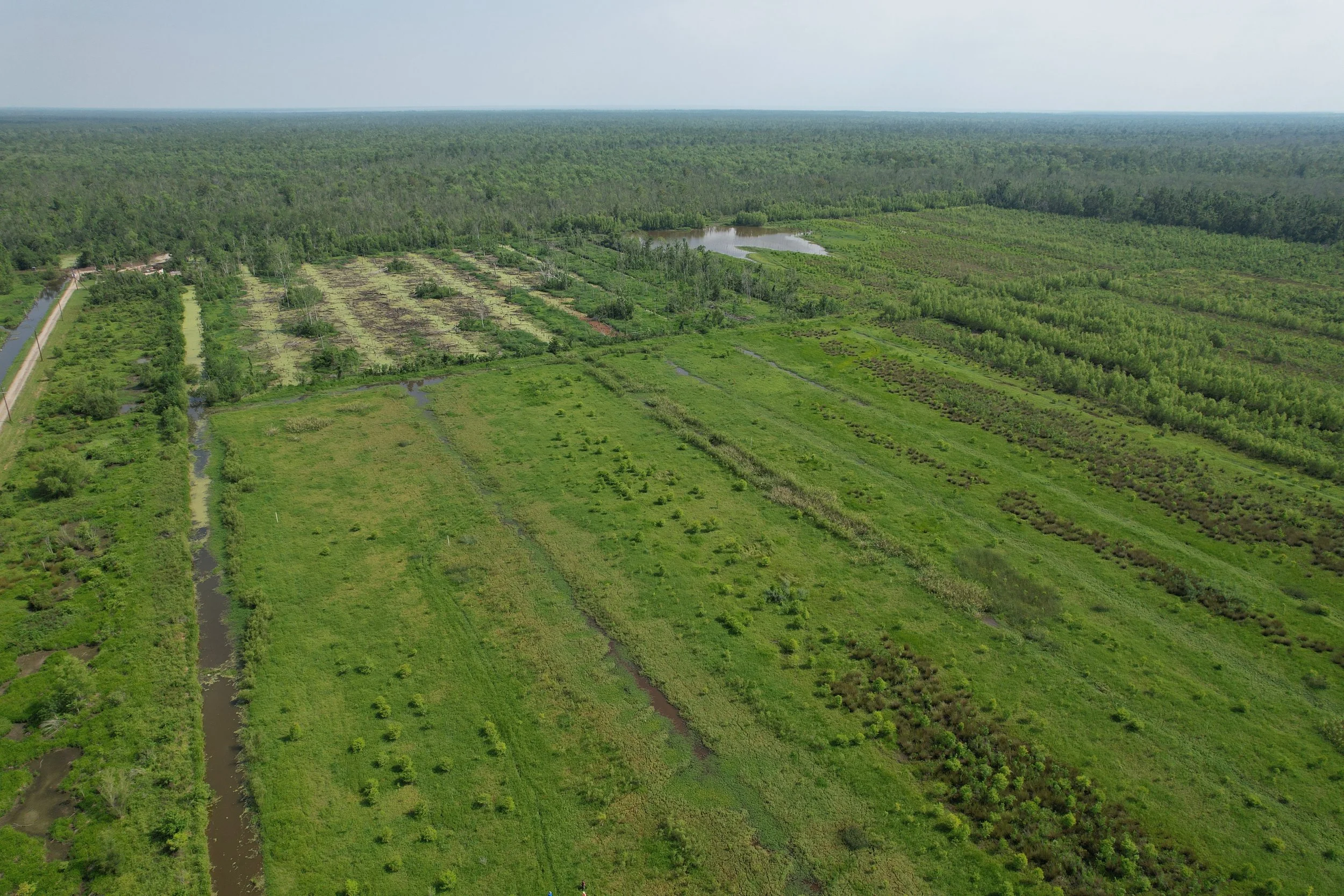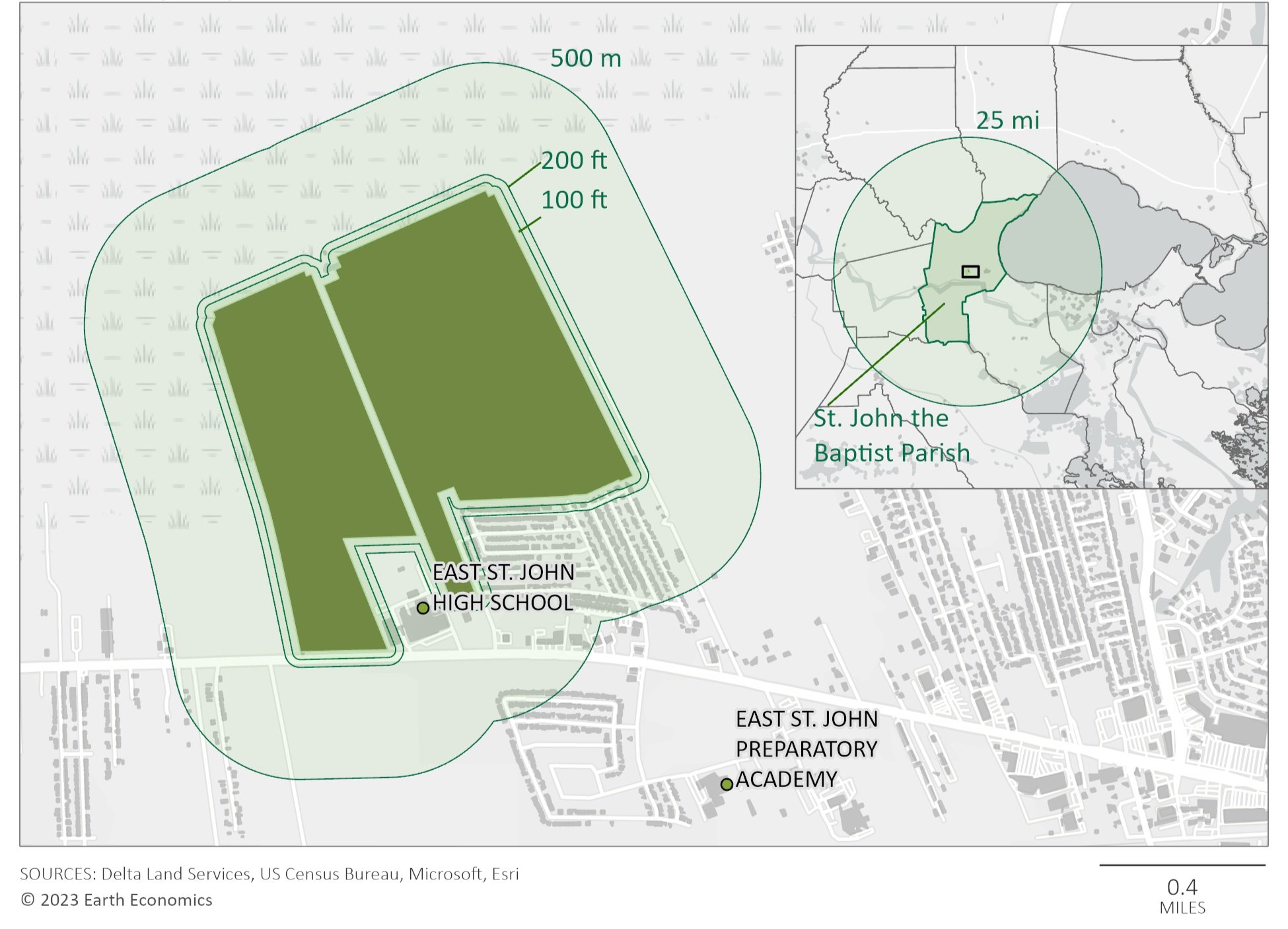IMPACT SUMMARY
DISASTER RISK REDUCTION: $166K/YR
Forested wetlands offer protection against natural disasters like hurricanes by absorbing and slowing water from coastal storms, and dampening surface winds.
AIR QUALITY: $2.4K/YR
Vegetation captures air pollutants such as particulate matter and ozone, reducing respiratory illnesses.
AESTHETIC BENEFITS: $10K–$54K/YR
Residents and visitors both enjoy and appreciate the scenery, sounds, and smells of nature. Homes are often higher in value the closer they are to natural amenities—up to 7 percent, in some cases.
WATER QUALITY: $209K/YR
Wetlands improve water quality by processing and removing nutrients and other contaminants from surface and groundwater, and keeping topsoil in place—benefitting both humans and aquatic species.
SOCIAL VALUE: $1.1M—$1.9M/YR
People see value in knowing that some habitats persist—people are willing to pay for restoration of sites they will never see. BPCMB strengthens the protection and restoration of the adjacent Maurepas Swamp Wildlife Management Area.
POLLINATION, SEED DISPERSAL: $86K/YR
Plants rely on pollination by animals and insects that require suitable habitat to sustain their populations. The BPCMB provides critical habitat for species to benefit local farms.
HABITAT: $94K–$1.2M/YR
Natural areas provide shelter, food, and living spaces for fish and wildlife. Restoration of the BPCMB site expands the accessible habitat of the Maurepas Swamp Wildlife Management Area.
CARBON STORAGE: $98K/YR
Forests and wetlands capture and store atmospheric carbon, helping to mitigate environmental risks of global climate change. These benefits can be valued as changes in agricultural production, avoided disaster risk, and more.
In 2023, Earth Economics partnered with Delta Land Services, a regional leader in coastal forested wetland restoration activities, to value the broader benefits of their work restoring coastal wetlands.
Delta began development of the Belle Pointe Coastal Mitigation Bank (BPCMB) in 2016. The 387.6-acre Wetland Mitigation Bank was previously agricultural land, which flooded frequently, requiring regular pumping to allow for farming. Annual sugar cane burns released smoke and ash, and seasonal agrichemical treatments exacerbated local community health.
Delta restored the site to coastal bottomland hardwood and coastal cypress swamp, with additional investments to support ecosystem services and biodiversity, such as protecting wetlands important for wading birds and waterfowl, removing non-native species, and purchasing an additional 187-acre wildlife corridor to connect to a nearby wildlife management area.
Restoring wetland ecosystems improves several ecosystem services of great social, economic, and environmental value to communities. Earth Economics found that restored forested wetlands provide $3 million in benefits each year — $1,813 per person to nearby residents and students. By permanently protecting the wetlands, the bank will create $101 million (USD 2021) in ecosystem services.
Through restoration, the following groups will receive benefits:
93 to 177 homeowners’ properties gain value by beautifying the area
1,506 residents will likely experience health benefits due to improved air quality
1,100 students will likely benefit from better air quality
42,100 residents of St. John the Baptist Parish directly benefit from water quality improvements and a more resilient water supply system
434,000 nearby residents benefit from the expansion of green space in a heavily industrialized area



